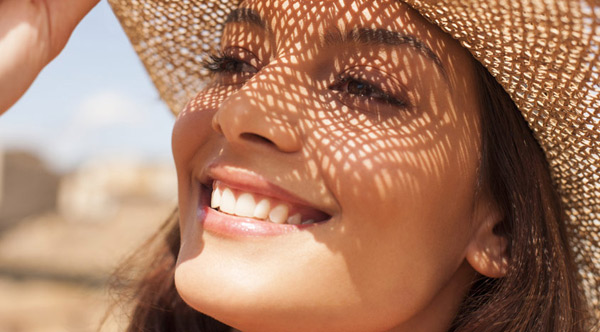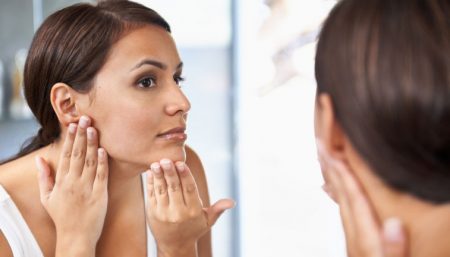
There are certain foods that can actually intensify your body’s natural resistance to UV. On top this, a regular intake of certain foods can also help your body repair sun damaged skin.
A Mediterranean diet that includes fish packed with inflammation-fighting omega-3 fatty acids—as well as citrus, fresh herbs and veggies rife with polyphenols—may slash your melanoma risk in half, the International Journal of Epidemiology reports. |
Red/Orange colour Foods
Anti-oxidant, lycopene is found in red colored foods. Lycopene helps lessen the effects of incidental sun exposure, such as when you are unable to re-apply sunscreen. It will also help your body fight the after effects of sun exposure. Tomatoes have a high lycopene content. Researchers suggest that eating approximately 20 grams of tomato paste, or around 1 1/4 tablespoons a day, can lessen sunburn risk by around 30 per cent. Other foods that are high in lycopene are watermelon, purple plums, pink grapefruit and guava. Asparagus and red cabbage, red capsicum are also known to have a high lycopene content.
Green Vegetables
Leafy greens, like dark green lettuce, spinach, kale, and Swiss chard, are rich sources of the antioxidants lutein and zeaxanthin, which have proved to halt cell growth prompted by UV light in animal studies. Research shows that broccoli and cauliflower, in the cruciferous family, contain sulforaphane, which is linked to increasing the skin’s ability to protect itself from cancer.
Green Tea (Polyphenols)
Green tea contains many beneficial substances, including polyphenols. Polyphenols have been shown to help reduce skin inflammation. Both topical applications and dietary intake of green tea have also been shown to protect the skin from sunburn and help to reverse sun damage. Green tea is full of antioxidants called epigallocatechin gallate or EGCGs. EGCG is so potent, because it contains between 25 to 100 times the antioxidant power of vitamins C and A. They help stop genetic damage in human skin cells caused due to exposure to UV light in one University of Wisconsin study. Research suggests that downing a cup or more of tea a day may lower risk for squamous cell carcinoma, a type of skin cancer, by 30 percent.
Dark Chocolate

Chocolate contain avonoids that can limit sun damage. This applies to dark chocolate and cocoa. It does not apply to milk chocolate. Drinking 2 to 5 cups of coffee a day may lower risk for non-melanomas by up to 17 percent. And cocoa can make skin up to 25 percent less sun-sensitive.
Fish & Fish Oil
Omega 3 is present in high quantities in fish such as salmon and tuna has been shown to have strong skin preserving properties. In a small British study, fish oils have proved to guard against sunburn and DNA changes that can lead to cancer. There have been studies that have indicated a strong correlation between a diet high in omega 3 and increased resistance to sun burn.
Flaxseed & Walnuts
Rich in essential fatty acid, they can prove to be good sun-protectors.
These foods can help fight free radicals, that contribute to annoying problems like premature aging and can be a product of unprotected sun exposure.
Disclaimer
The Content is not intended to be a substitute for professional medical advice, diagnosis, or treatment. Always seek the advice of your physician or other qualified health provider with any questions you may have regarding a medical condition.

